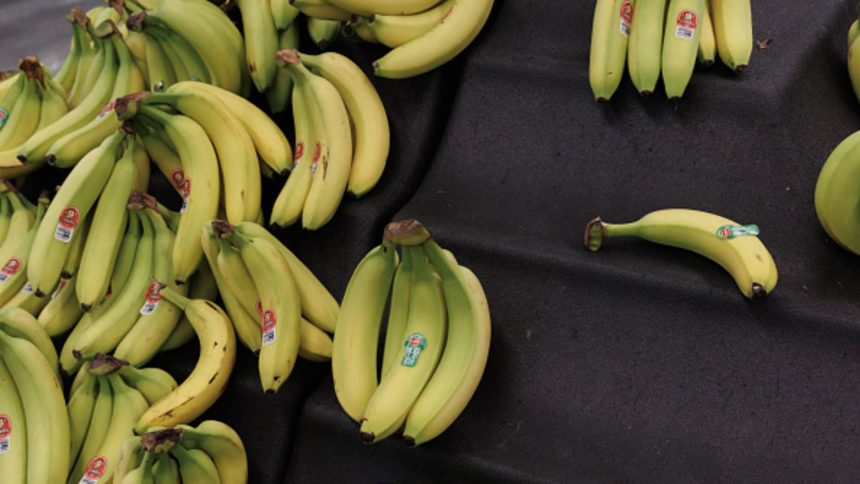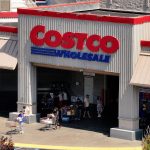As the East and Gulf Coast ports strike continues for a third day on Thursday, consumer fears over product shortages have led to panic buying along the East Coast and Gulf Coasts, with shoppers buying up toilet paper and other household items, leaving barren shelves in their wake.
The National Grocers Association, which represents more than 1,500 members in the independent supermarket sector — family-owned or privately-controlled food retail companies — told CNBC it is conveying to the public the need to remain calm. Nationally, there are more than 21,000 independent grocery stores in the United States, generating more than $250 billion in sales and providing more than a million jobs.
“As port strikes are underway, independent grocers are actively collaborating with their wholesalers to secure alternative supply options and are efficiently managing their inventory to ensure minimal disruption to their customers,” a spokesman wrote to CNBC. “Products such as toilet paper and bottled water, along with so many other items on consumers’ shopping lists, are made in the U.S. and are not affected by the port strike. While some fresh produce items may become unavailable, they will be restocked quickly once the strike ends.”
The Department of Commerce said in a statement to CNBC that the “work stoppage at East Coast and Gulf Coast ports will not have a meaningful impact on toilet paper supplies. Nearly 90 percent of toilet paper used in the United States is domestically produced, with the majority of imported supplies coming from Canada and Mexico over road or rail.”
The National Retail Federation told CNBC retailers have been preparing for the possibility of a strike at East and Gulf Coast ports for months, including frontloading shipments of discretionary and non-discretionary products.
“The industry is working with supply chain partners in the manufacturing, supply, logistics and shipping industries to ensure essential products and services remain readily available to customers, and retailers will continue to meet consumer demand. There is no need for panic buying, and we encourage consumers to shop responsibly. If you don’t need an item in the next two weeks, please leave it for someone who does,” the federation said in a statement.
Bill Simon, former CEO of Walmart, stressed that panic buying is serious and can have a cascading effect on domestic products.
“Panic buying not only impacts the availability of imported products, but domestic products as well as consumers shift their purchase behavior,” warned Simon. “Upward pressure on prices coming so quickly on the heels of several years of inflation will have a chilling effect on the consumer … who is already in a sour mood. Every effort should be made to settle this immediately.”
Simon added the U.S. supply chain has been engineered to reduce cost.
“That required us to eliminate much of the safety stock that cushions disruptions,” he said. “So when an external action, [like] Covid [or a] port strike, creates abnormal demand in the form of panic buying, the supply chain doesn’t have the ability to react to that.”
Walmart and Target did not immediately respond to requests about any panic buying patterns identified at their stores.
‘We are worried.’
John Catsimatidis, owner of the NYC super chain Gristedes, said the panic buying is occurring and showing no signs of slowing down.
“Toilet tissue is the No. 1 item being purchased followed by paper towels,” said Catsimatidis. “We are worried about the produce department and are looking for alternatives to transport produce.”
Data from Vizion shows almost 2,000 containers filled with fresh produce are stuck on vessels anchored off the ports that are shuttered because of the strike.
Catsimatidis, who supported Donald Trump in 2020 and is backing the Republic candidate again, said from his perspective, these issues could have been avoided by the Biden administration.
“We do not understand why President Biden has not invoked Taft-Hartley to extend negotiations,” he said, referring to the federal law which allows a U.S. president to intervene and stop a strike for an 80-day period. “Neither side is talking and vital trade is on the water. Consumers are thinking ahead, buying products now but that will further stress supply chains. Get the parties back to the table.”
Stew Leonard, Jr., CEO of grocer Stew Leonard’s, told CNBC his grocery stores anticipated the strike and frontloaded what they could and are good through Thanksgiving. But customers looking for fresh produce and fish might have to modify their buying.
“Customers who may like the sweet Brazilian shrimp may have to buy Gulf shrimp,” said Leonard. “Pineapples, bananas, and mangos are exported to the East Coast as well as other vegetables like asparagus. Bananas are the No. 1 fruit export in our produce department. We will get them, but it may be a longer transit from China, or fly and truck them in. This will drive up prices because of the price of logistics. That’s when you see parents opting to put an apple in the lunch box rather than bananas.”
Leonard said the cost of bananas could double over the short term.
Read the full article here




